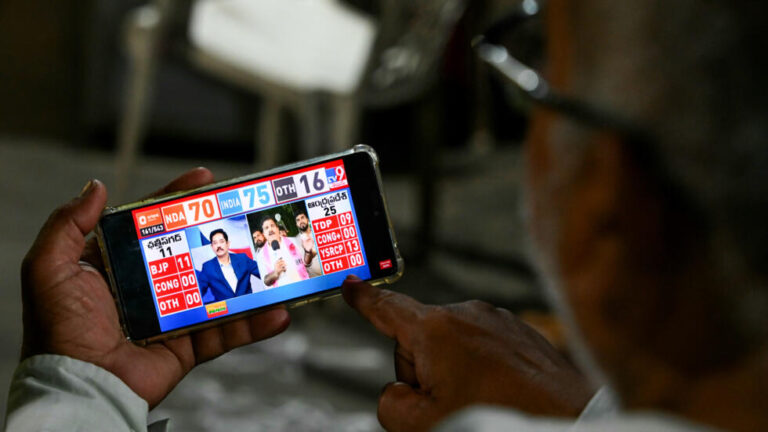India’s recent six-week election was not only a massive logistical feat but also saw an “unprecedented” flood of online disinformation.
This historic democratic event was marred by a surge of fake news on social media and instant messaging platforms, featuring everything from doctored videos to misleading images.
Raqib Hameed Naik of the US-based India Hate Lab highlighted the extraordinary level of disinformation during the elections. “Conspiracy theories were vigorously promoted to deepen the communal divide,” said Naik, whose organization focuses on researching hate speech and disinformation.
Throughout the seven-stage voting process, AFP fact-checkers debunked 40 election-related falsehoods that spanned India’s political landscape.
There were fake videos claiming Bollywood stars endorsed the opposition and footage suggesting one person cast multiple votes. Some were humorous, but others were sophisticated attempts to deliberately mislead and were widely shared.

Prime Minister Narendra Modi’s Hindu-nationalist Bharatiya Janata Party (BJP) faced criticism for posts that stoked sectarian tensions with India’s 200 million-strong Muslim community. These included videos and speeches falsely claiming that Modi’s opponents intended to redistribute wealth in favor of Muslims. Naik noted that such posts aimed to “stoke fear and animosity towards Muslims to polarize voters along religious lines.”
The opposition Congress party, led by Rahul Gandhi, also fell victim to widespread disinformation. Gandhi’s statements, videos, and photos were often taken out of context or digitally altered. One manipulated video flipped his statement to falsely suggest he supported Modi for a third term. Other posts falsely linked Gandhi to India’s rivals, Pakistan and China, and portrayed him as anti-Hindu.
Among the disinformation targeting Gandhi was a video showing a ruined Hindu temple in Pakistan, falsely claimed to be in his constituency, and another doctored video suggesting he refused a statue of a Hindu god. BJP supporters widely shared these posts.
Political disinformation was not one-sided. Opposition parties also spread fake news against the BJP, including manipulated videos of Bollywood actors criticizing the ruling party and false claims about electronic voting machine tampering.
Joyojeet Pal, a University of Michigan expert on technology and democracy, noted that trust in online content is declining. Indian social media users are aware of the prevalence of disinformation but often share content that aligns with their beliefs, regardless of its veracity.
In summary, India’s election showcased the challenges of managing disinformation in the digital age, highlighting the need for critical media literacy among voters.


